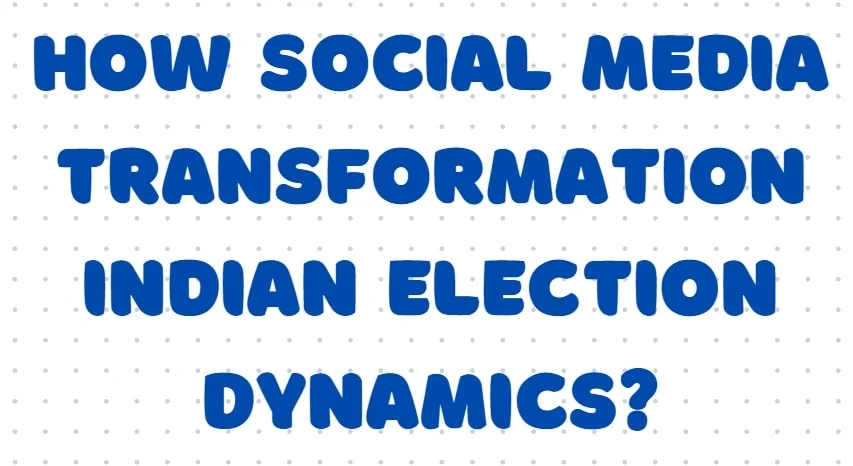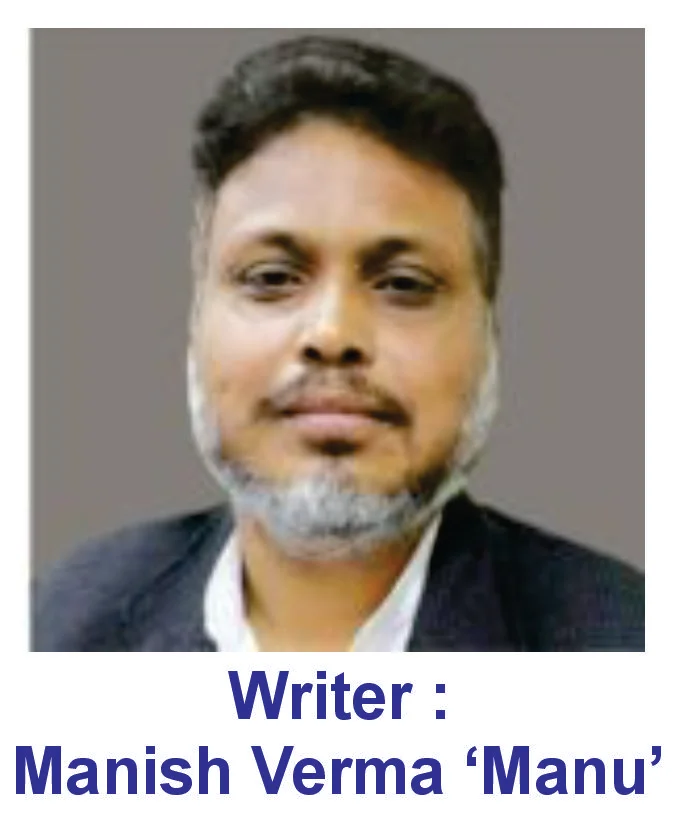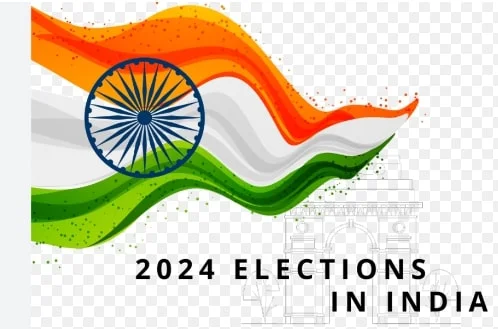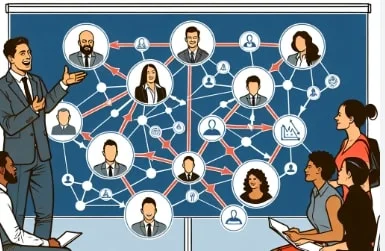Discover the fascinating insights into how social media has revolutionized Indian election dynamics in “Unveiling the Truth: How Social Media Transformation Indian Election Dynamics.” Explore the transformative power of digital platforms in shaping the political landscape.


It is election season. Election winds are blowing. This is the speciality of Indian democracy, as soon as elections come, everyone jumps into the electoral fray. Whether the candidate or the common man. You will find people doing election analysis on streets and intersections.
Even if the percentage of voting is low, what difference does it make, at the paan and tea shops, some people are busy in election analysis, some with betel leaves pressed in their mouths and some while sipping tea. It seems as if the government has to be formed here only. We will survive only by forming the government today.
The Digital Reshaping of Indian Election From Streets to Screens

However, you cannot discuss elections openly in government offices, somewhere you are bound by government rules and laws, but discussions take place here too. People get divided into camps completely unaware that this is not in their control. Everything ends as soon as the elections are over.
Your comments, your discussions and your analyses all remain in vain. You have discharged your constitutional rights, that is enough for the common people. You should be proud of the fact that you have elected the government of your choice.
How slowly change is coming. We are not able to understand it. Time has slowly taken a turn. Try to understand. Now where are those things when candidates used to go from village to village and street to locality and share their views?
People used to go from village to village on bullock carts and bicycles and talk to each other. But now our feet do not come down from big vehicles. Now conversations happen from inside the black glass and a lot of things get missed and hidden amidst the clouds of dust rising behind those convoys of vehicles.
Earlier there used to be a very brotherly relationship even with its rivals. We used to respect each other, but now when elections are being fought in TV debates, on WhatsApp, Facebook and Twitter, a different dimension is visible. What we used to celebrate as a festival till yesterday has now become completely limited.
The Paradox of Connectivity in Modern Indian Elections Virtual Voices, Real Impact
That campaigning of candidates on the mic in the streets for months. Crowds of people following candidates and their campaign vehicles seem to be a thing of the past. People used to wait for the arrival of big leaders. Everyone came from far and wide to listen to his speeches.
People used to wait for hours plucking peanuts in the grounds where his speech was to be held. The ceremony was held only after those speeches.
The manifesto was issued then and is issued even today, but at that time the common man did not know about it. The speeches of the leaders used to be the mouthpiece and manifesto of the party. People used to gather at the intersections and gardens and discuss them only.

The entire Indian elections process was like a great festival. Moving the ballot paper here and there with those big boxes. After the election process is over, their disposal will be done in one environment. On the day of counting votes, people stand for hours in front of the local newspaper office and express their reactions to the trends.
What a strange period that was. In later days, when Doordarshan expanded its reach, movies were telecasted on Doordarshan during the counting of votes. People used to remain glued to the TV all day long. What can be said about today? Everything is in front of you, at your fingertips.
Earlier, the things that used to happen at intersections, streets, paan and tea shops have today been replaced by various social media including WhatsApp, Facebook and Twitter. This is also a period of change. Now we do not talk to each other face to face, fighting, quarrelling or coaxing. We still talk, but completely virtually.
We have been talking to each other for years, he is our friend, but we do not recognize each other. When we meet, we make each other feel like we are friends by referring to social media. We still choose governments, but what is the case now? We do not take the blame on ourselves, but we are guilty, so why do we blame others?
✒ Manish Verma ‘Manu’
FAQ : Frequently Ask Question (People Also Ask)
Q. What role do traditional methods of campaigning play in modern Indian elections?
Ans. While traditional methods like street rallies and public speeches still hold significance, their influence has diminished compared to the pervasive reach of social media. Candidates now utilize a mix of both traditional and digital campaigning strategies to connect with voters across diverse demographics.
Q. How has social media affected voter engagement and participation in Indian elections?
Ans. Social media platforms have enhanced voter engagement by providing accessible platforms for political discussions, analysis, and information dissemination. However, concerns remain regarding the quality of information shared and the potential for misinformation to sway opinions.
Q. How has the advent of social media influenced the transparency and accountability of Indian elections?
Ans. Social media has increased the transparency of Indian elections by providing a platform for real-time updates, live debates, and direct interactions between voters and candidates. However, challenges such as the spread of fake news and manipulation of online discourse underscore the need for robust regulations and digital literacy initiatives to ensure electoral integrity.
Q. How has the advent of social media influenced the transparency and accountability of Indian elections?
Ans. Social media has increased the transparency of Indian elections by providing a platform for real-time updates, live debates, and direct interactions between voters and candidates. However, challenges such as the spread of fake news and manipulation of online discourse underscore the need for robust regulations and digital literacy initiatives to ensure electoral integrity.
Searches Key : Indian election dynamics, Social media impact, Political landscape transformation, Digital platforms, Election analysis, Government formation, Digital reshaping, Connectivity paradox, Virtual voices, Real impact, Election campaigning, Traditional campaigning, Election process, Ballot paper, Counting votes, Doordarshan era, Social media platforms, WhatsApp, Facebook, Twitter, Virtual communication, Online interactions, Government selection, Self-accountability, Blame shifting








